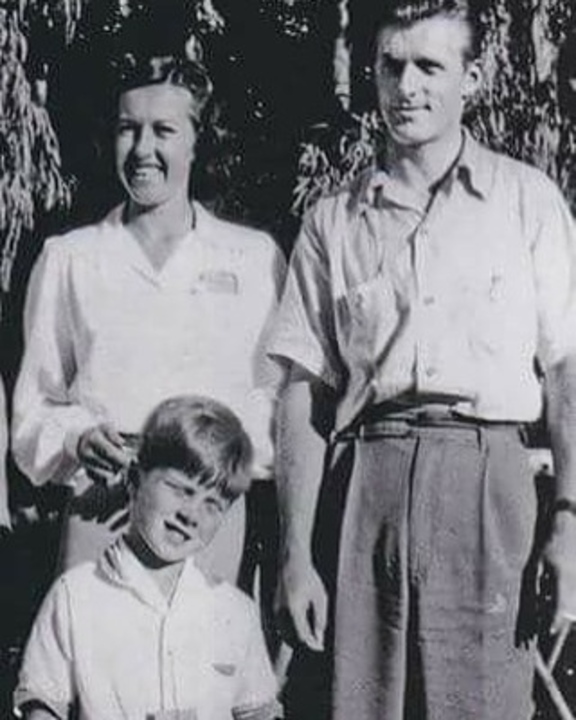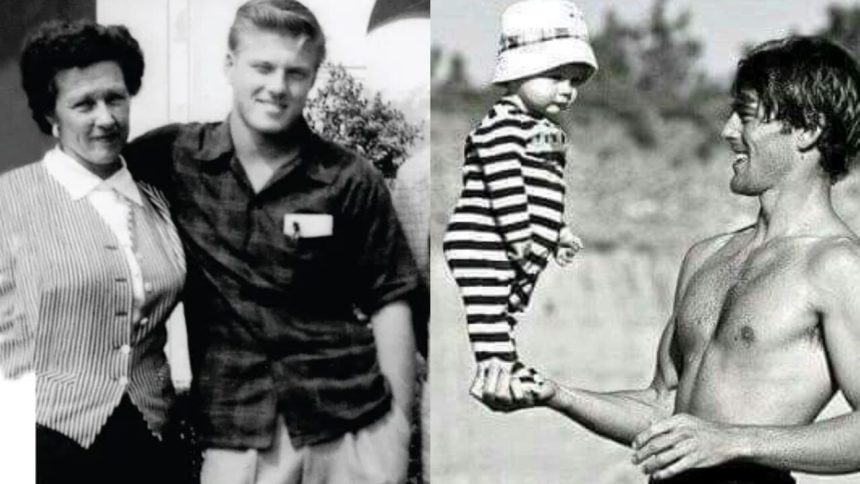Robert Redford‘s passing on September 16, 2025, at the age of 89, marked the end of an era in Hollywood. The legendary actor, director, and environmentalist left behind a profound legacy that was deeply shaped by his background and personal history. While the world knew him as a screen idol and the founder of the Sundance Film Festival, his character and values were forged long before he stepped in front of a camera, rooted in the experiences of his childhood and the influence of his parents.
The story of Redford’s family begins with his parents, Charles Robert Redford Sr. and Martha Woodruff Redford (née Hart). Charles Sr. worked as a milkman before becoming an accountant for Standard Oil, providing for his family through practical, hardworking means. Martha was a homemaker who created their foundation in Santa Monica, California, where Robert was born on August 18, 1936. Tragedy struck early when Martha died in 1955, when Robert was just 18 years old, a loss that undoubtedly shaped his resilient character. His father, who passed away in 1991, later remarried and had a son named William, giving Robert a paternal half-brother.
You Might Like: Who Is Candace Owens’ Husband? All About George Farmer
A Tapestry of Heritage and Family Dynamics
Robert Redford’s ethnic background was a rich blend of British Isles ancestry. His roots were primarily English, Irish, and Scottish, with additional strands of Northern Irish/Scots-Irish and Cornish heritage. This diverse European background contributed to the distinctive look that would become famous worldwide. His patrilineal line can be traced back to Elisha Redford and Mary Ann McCreary, who emigrated from England to the United States in 1849.
On his mother’s side, he had deeper American roots, particularly in the South, where her family had lived for many generations. This connection to Southern culture influenced young Robert, who often visited his maternal grandfather in Texas during his childhood. He credited these Texas experiences with fostering his lifelong love of nature and commitment to environmentalism.

The dynamics were further shaped by tragedy when Robert’s half-brother William was born from his father’s second marriage. Though not much is widely known about their relationship, the presence of a half-sibling added another layer to Redford’s journey. These early personal experiences—the loss of his mom, the practical work ethic of his dad, the blending of a new family, and the cultural influences from both coasts and the South—created a complex foundation that would later inform Redford’s diverse career as both an artist and an activist.
The Personal Becomes Professional
Robert Redford’s family life and heritage didn’t just influence his personal character; they directly shaped his professional choices and artistic sensibilities. The environmental advocacy that became central to his identity was rooted in those childhood trips to Texas, where he developed a deep appreciation for the natural world. The loss of his mother at a young age perhaps contributed to the emotional depth he brought to his performances and later to his directing.
Even the practical sensibility of his accountant father might have contributed to the business acumen that allowed Redford to build the Sundance Institute into a transformative force in independent cinema. Beyond his immediate family, Redford’s own role as a dad to four children—Scott, Shauna, James, and Amy—further defined his life, though marked by the profound tragedy of losing his infant son Scott to SIDS and his adult son James to cancer in 2020.
Ultimately, Robert Redford’s story is one of both exceptional achievement and deeply human experience. The same man who captivated audiences with his performances in Butch Cassidy and the Sundance Kid and The Sting, who won an Oscar for directing Ordinary People, and who built Sundance into a cultural institution, was also a boy who lost his mother too young, a man who knew the pain of losing children, and a person whose diverse heritage reflected the complex tapestry of America itself. His family background and ethnicity weren’t just footnotes to his story, they were essential threads in the fabric of his remarkable life and legacy.



